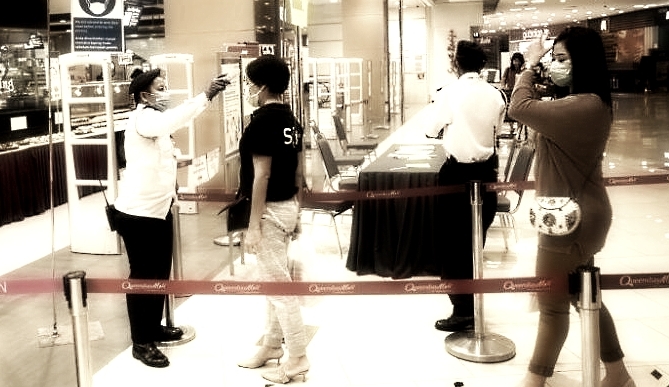
By Professor Dr Moy Foong Ming
During the COVID-19 pandemic, everyone should do his/her part in preventing the spread of the disease.
The government has enforced the movement control order with the aim of maintaining social distancing. The enforcement includes closing of schools, universities and non-essential services, etc.
In order to ensure there is no shortage of food among the public, the government allowed travel within 10km for grocery shopping but restricting the operating hours of supermarkets and grocery stores from 8am to 8pm.
Lately, we read and heard of numerous complaints about supermarkets denying entry to customers without wearing masks. This is a wise move by the supermarket’s management as the latest recommendations on mask wearing has been reversed.
The CDC recommended that public should wear a mask when they are in a community setting, grocery stores or where social distancing is not possible. The rationale is that some people can test positive for COVID-19 but do not develop symptoms. During this asymptomatic period, these infected people can be contagious and therefore transmit the virus to others.
Therefore, if everyone wears a mask, individuals protect one another, thus reducing overall community transmission.
However, the masks need not be surgical or N95 masks as these need to be reserved for the frontliners. The public can use home-made cloth masks which include multiple layers of fabrics that allow for breathing without difficulty, fit snugly but comfortable on the sides of the face, secure with ties or ear loops and able to wash without damaging the mask.
As for supermarkets, some are following the preventive measures for the COVID-19 transmission very well, but some are not. Supermarket managements are strongly encouraged to implement the following measures:
a. Ensure all employees are in their optimum health by taking their temperatures daily and enforce mask wearing for all. Those with high temperatures are not allowed to work and should seek medical treatment.
b. Take temperatures of all customers at the entrance and deny entry to those with abnormal temperatures.
c. Ensure all customers are wearing a mask (cloth mask is acceptable) in an appropriate way.
d. Provide hand sanitizer for customers at the entrance and exit of the supermarket.
e. Enforce social distancing at the entrance.
f. Enforce social distancing within the supermarket by limiting the number of customers in the premises at any one time.
g. Enforce social distancing at the queue for payment
h. Offer the sale of single-piece face masks to customers who come without a mask.
Measures (a) to (e) may be implemented by most supermarkets, but not all control the number of customers within their premises. We often observed many people crowding over some counters selling popular items, i.e. vegetables, fruits, chicken, etc. We also do not observe the queue for payment having a one-meter distance between each customer.
Turning a customer away for not wearing a face mask or forcing him/her to buy a box of face masks when he/she only needs one piece is unreasonable. The management should be empathetic with the customer by offering the sale of one piece of face mask for him/her to do his/her shopping. In this way, it will be a win-win situation.
People planning to visit the grocery stores or supermarkets should remember to wear a mask (can be cloth mask as mentioned above), maintain social distancing (at the entrance, within the supermarket and at the queue for payment) and practice hand hygiene (use hand sanitizer).
All these measures need to be practiced in order to stop the transmission of COVID-19.
(Professor Dr Moy Foong Ming is Professor in Epidemiology, Department of Social & Preventive Medicine, Faculty of Medicine, Universiti Malaya.)
ADVERTISEMENT
ADVERTISEMENT


































